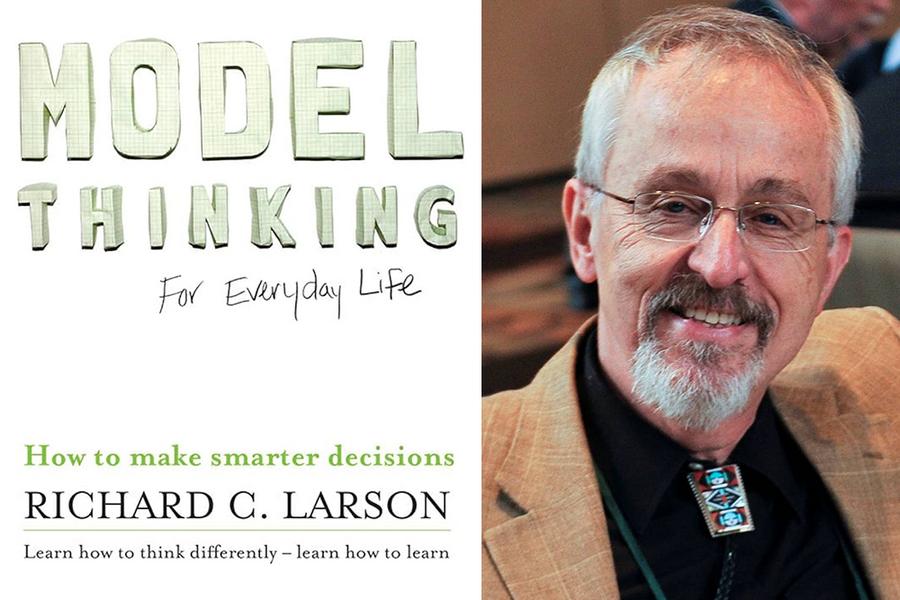- Autonomous mobility could have many benefits, including enhanced safety and efficiency, but there are challenges.
- Saudi Arabia is in the early stages of incorporating autonomous mobility into the country’s transportation landscape.
- Here are three factors that will be key to supporting the safe and responsible adoption of autonomous mobility.
Saudi Arabia is currently at the nascent stages of incorporating autonomous mobility technology into its transportation landscape.
Ambitious projects like the NEOM urban area and Red Sea Global have been conceived with sustainable transportation systems in mind, offering autonomous mobility choices such as airtaxis and volocopters, autonomous pods for transporting people and goods.
Furthermore, several mega projects in cities like Al Ula, Thuwal, and Riyadh are also set to provide autonomous vehicles (AVs) as part of their transportation options.
AV technology, driven by advanced computing, artificial intelligence, machine learning and faster communication networks, offers substantial economic benefits. In the US alone, it is estimated that it could annually save more than $750 billion by reducing vehicle crashes and optimizing travel time.
Autonomous air mobility has similar potential, enhancing safety, efficiency, and air traffic management, with wide-reaching impacts on aviation, logistics, urban transport, healthcare and agriculture.
There are also risks, including cybersecurity, unemployment, skills gaps and infrastructure challenges. However, the central concern in adopting autonomous mobility technology is public safety.
Safety vital for autonomous mobility development
Demonstrating safety and responsible development is crucial and a key focus of the World Economic Forum’s Global Future Council on the Future of Autonomous Mobility, with active participation from Saudi Arabia.
To support the adoption of these new mobility systems in both passenger and logistics sectors, the National Transport and Logistics Strategy (NTLS) has been put in place, in line with the country’s Saudi Vision 2030.
This strategic move has been further reinforced by the Transportation General Authority’s (TGA) sector-specific strategy for land transport. This sets ambitious targets which aim to transition 25% of goods transport vehicles into autonomous vehicles by the year 2030.
TGA efforts align with other parts of the government, including the Ministry of Transport and Logistic Services, the Ministry of Municipal and Rural Affairs and Housing, the Ministry of Communications and Information Technology, the Saudi Authority for Data and Artificial Intelligence.
Saudi Arabia’s experience shows that safe and responsible adoption of autonomous mobility hinges on a combination of three factors. These are:
1. Enabling innovation with safety and transparency
Currently, the Centre for the Fourth Industrial Revolution (C4IR) in Saudi Arabia is exploring the use of ‘regulatory framework’ governance models to ensure the safety of this autonomous mobility technologies.
Innovation in this space can greatly benefit from such models as they could potentially result in increased safety assurance and fewer obstacles to innovation adoption. A regulatory sandbox provides exemptions from existing regulations, but with strict limitation in scope and duration requirements to disclose data.
For example, the US state of California has granted on-road state testing permits to more that 65 companies, one of which being NURO. These waivers require that only basic information is reported to regulators on the frequency of “disengagements”.
This low level reporting, some argue, is not sufficient to evaluate the safety of AVs, and will likely not support a regulatory agency’s work to establish safety standards given the short timespan required for the mass adoption of AVs.
2. Fostering inter-agency collaboration
Collaboration between governmental, private, local and international organizations, as well as research institutions, is vital for the advancement and development of autonomous mobility technologies.
For example, the TGA is leading a national level Future of Mobility Committee, headed by the Vice Minister of Transportation and Logistics Services (MotLS), that is composed of 10 government stakeholders, aims to align the strategies, initiatives and projects owned by the stakeholders and develop a national master plan and incentives for future of mobility.
C4IR Saudi Arabia is teaming up with various organizations, including TGA, MoTLS, King Abdullah University for Science and Technology (KAUST) and the Royal Commission for Al Alu (RCU) to ensure a unified approach to autonomous mobility in the country, and to advance regulation, testing and validation of autonomous mobility solutions.
This effort is supported by a memorandum of understanding signed between C4IR KSA and MoTLS on October 9. These organizations will jointly participate in an upcoming workshop led by C4IR Saudi Arabia, which aims to create responsible policies for autonomous systems in the country, covering ground and air mobility.
Several other collaborations are also taking place. For example, NEOM, in collaboration with Volocopter and Saudi Arabia’s General Authority of Civil Aviation (GACA), is actively working towards preparing and expanding electric vertical take-off and landing (eVTOL) aircraft operations within Saudi Arabia.
This collaboration includes the establishment of an airtaxi testbed within the NEOM area to facilitate the development and growth of eVTOL technology in the country. This represents significant progress toward the adoption and future commercial operation of eVTOL aircraft in the NEOM special economic zone and neighbouring regions.
3. Intermodal learning
C4IR Saudi Arabia’s autonomous mobility portfolio comprises two main tracks: one centred around autonomous vehicles and the other dedicated to heavy lift drones. While these modes have unique characteristics and demands, there is a valuable need for a cohesive framework.
Additionally, the TGA, as it pursues its mission of safe and responsible adoption of autonomous technology, also encompasses autonomous sea mobility.
The Global Future Council on the Future of Autonomous Mobility addresses various modes, promoting the exchange of best practices and synergies among them.
In the realm of autonomous air mobility, Saudi Arabia is concentrating on advancing heavy lift drones and assisting stakeholders in defining the regulatory and operational prerequisites essential for positioning the Kingdom as a pioneer in autonomous cargo aircraft.
It’s important to note that autonomous mobility encompasses deployments on roads, in the air, and at sea. Just like the Global Future Council on Autonomous Mobility, Saudi Arabia aims to emphasize the importance of cross-mode knowledge-sharing.
Whilst the country is in the early stages of its journey, it is steadfastly progressing in the right direction on autonomous mobility. It is also committed to ensuring that efforts and activities remain aligned and well-coordinated, through collaborative efforts, allowing successful achievement of its goals and targets.
By: Omaimah Bamasag (Deputy, Transportation Enablement, Transport General Authority – Kingdom of Saudi Arabia), Basma AlBuhairan (Managing Director, Centre for the Fourth Industrial Revolution Saudi Arabia) and Waleed Gowharji (Project Fellow, Autonomous Vehicles, World Economic Forum)
Originally published at: World Economic Forum










